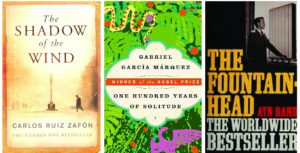KARACHI:
As August 28 turns one of Hollywood’s most visionary directors a year older, it’s time to dim the lights, silence your phone, and settle in for a journey through the dark and twisting corridors of David Fincher’s mind. Known for his meticulous attention to detail, haunting visual style, and penchant for exploring the shadowy recesses of human nature, Fincher has crafted a body of work that continues to captivate and unsettle audiences in equal measure.
To celebrate the birthday of this cinematic icon, we’ve curated a quartet of Fincher’s finest – four films that showcase the evolution of his craft and the themes that have defined his career. So grab your popcorn (and maybe leave a light on), as we dive into a day-long marathon that will leave you questioning everything you thought you knew about the world around you.
1. Se7en (1995)
We begin our Fincher fest with the film that put him on the map and still sends shivers down viewers’ spines nearly three decades later. Se7en plunges us into a rain-soaked, nameless city where two detectives – the soon-to-retire William Somerset (Morgan Freeman) and the hotheaded David Mills (Brad Pitt) – hunt a serial killer whose gruesome murders are inspired by the seven deadly sins.
From its haunting opening credits sequence to its gut-punch of an ending, Se7en established Fincher as a master of atmosphere and tension. The film’s oppressive urban setting becomes a character in itself, mirroring the decay and moral rot at the heart of the story. As Somerset and Mills descend further into the killer’s twisted world, Fincher ratchets up the dread with each revelation, culminating in one of cinema’s most shocking and memorable finales.
What makes Se7en the perfect opener for our marathon is how it lays the groundwork for Fincher’s career-long obsessions: the thin line between order and chaos, the depths of human depravity, and the often futile struggle to find meaning in a seemingly random universe. It’s a grim worldview, to be sure, but one that Fincher explores with unflinching honesty and dark beauty.
2. Fight Club (1999)
As we shake off the gloom of Se7en, our next stop is the cultural phenomenon that is Fight Club. Based on Chuck Palahniuk’s novel, this anarchic satire follows an unnamed insomniac narrator (Edward Norton) whose life is upended by the charismatic Tyler Durden (Brad Pitt). Together, they form an underground fight club that evolves into something far more dangerous and all-consuming.
Fight Club marked a stylistic leap forward for Fincher, blending his noir sensibilities with a manic energy and pitch-black humour. The film’s frenetic editing, fourth-wall-breaking narration, and hallucinatory visuals perfectly capture the fractured psyche of its protagonist and the collapsing world around him.
Beyond its technical virtuosity, Fight Club cemented Fincher’s reputation as a provocateur. The film’s exploration of masculinity in crisis, rampant consumerism, and the allure of destructive ideologies remains as relevant and controversial today as it was upon release. Love it or hate it, Fight Club demands to be grappled with – a trait shared by much of Fincher’s work.
3. Gone Girl (2014)
Next in our Fincher marathon is Gone Girl, his electrifying adaptation of Gillian Flynn’s 2012 bestseller. This twisted tale serves as the director’s razor-sharp dissection of modern marriage, media manipulation, and the elaborate facades we construct in the age of constant surveillance. When Amy Dunne (Rosamund Pike) disappears on her fifth wedding anniversary, all eyes turn to her husband Nick (Ben Affleck). As the investigation unfolds, we’re taken on a twisting journey that constantly upends our expectations and allegiances.
Gone Girl showcases Fincher’s evolution as a storyteller, swiftly blending elements of psychological thriller, dark comedy, and scathing social commentary. The film’s clinical visual style – all cool tones and precise framing – provides the perfect backdrop for its exploration of performative identities and the gap between our public and private selves. Pike’s tour-de-force performance as Amy is the standout, creating one of cinema’s most memorable and complex antiheroes.
The film’s clinical visual style – all cool tones and precise framing – provides the perfect backdrop for its exploration of performative identities and the gap between our public and private selves. Pike’s tour-de-force performance as Amy is the standout, creating one of cinema’s most memorable and complex antiheroes.
4. The Social Network (2010)
As we cap off our August 28th Fincher birthday marathon, we turn to one of the director’s most acclaimed works. This electrifying drama chronicles the founding of Facebook and the legal battles that followed, centering on the brilliant but socially awkward Mark Zuckerberg (Jesse Eisenberg).
Eisenberg leads a stellar ensemble cast that brings the early days of Facebook to life. Andrew Garfield shines as Eduardo Saverin, Zuckerberg’s best friend and co-founder, whose eventual betrayal forms the emotional core of the film. Justin Timberlake steals scenes as Sean Parker, the charismatic Napster founder who seduces Zuckerberg with visions of Silicon Valley glory. Armie Hammer pulls double duty as the Winklevoss twins, privileged Harvard rowing champions who claim Zuckerberg stole their idea.
At first glance, The Social Network might seem like a departure for Fincher. Gone are the serial killers and nihilistic antiheroes, replaced by Ivy League dorm rooms and Silicon Valley boardrooms. Yet the film fits perfectly into Fincher’s oeuvre, exploring themes of obsession, betrayal, and the corrupting influence of power.
Working from Aaron Sorkin’s crackling script, Fincher brings his trademark precision to the world of tech startups and legal depositions. The film moves at a breakneck pace, with rapid-fire dialogue and a propulsive editing style that mirrors the frenzied energy of its young protagonists.
Trent Reznor and Atticus Ross’s pulsing electronic score further enhances the sense of a new world being born – and the old one crumbling away. From the Henley Royal Regatta sequence (a tour de force of digital wizardry) to the claustrophobic coding montages, every frame is composed with purpose and style.
At its core, The Social Network is a tragedy of Shakespearean proportions. Zuckerberg’s rise to become the youngest billionaire in history comes at the cost of his closest friendships and, arguably, his own humanity. Eisenberg’s performance is a marvel of subtle complexity, showing us glimpses of the loneliness and insecurity that drive Zuckerberg’s relentless ambition.
- Desk Reporthttps://foresightmags.com/author/admin/
- Desk Reporthttps://foresightmags.com/author/admin/
- Desk Reporthttps://foresightmags.com/author/admin/
- Desk Reporthttps://foresightmags.com/author/admin/







